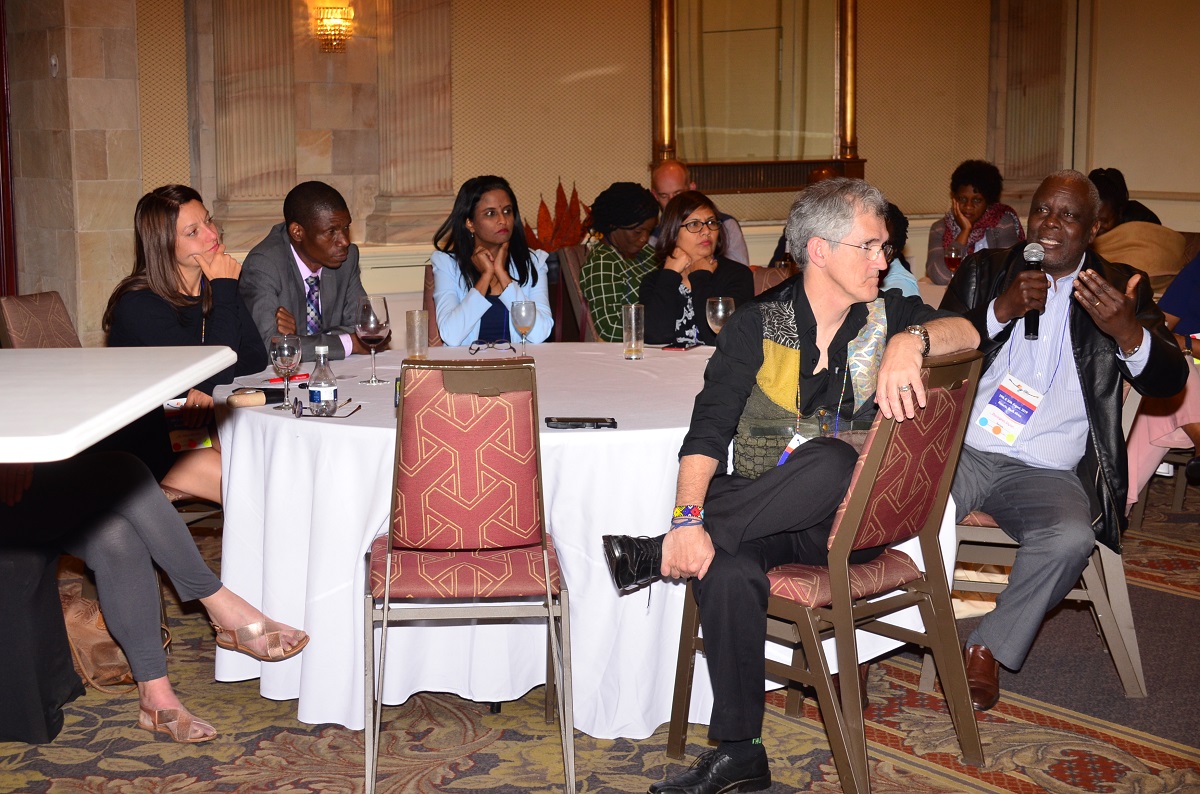
Language, Key in Communicating about Genome Editing
September 18, 2019| |
To get it right in communicating about genome editing, African editors have advised scientists to use appropriate language in their conversations with non-technical audiences. This was during the Africa Biennial Biosciences Communication (ABBC2019) Symposium held from August 29-30, 2019 in Pretoria, Republic of South Africa.
During a Science Café with genome editing researchers attending the Symposium, media editors emphasized that meaningful dialogue on genome editing will rely heavily on effective communication facilitated by clear language and choice of words.
Both the scientists and editors concurred that, primarily, genome editing is an unfamiliar technology to most non-technical and yet important stakeholders in harnessing and delivering potential of the technology. Hence, as genome editing development progresses, use of appropriate language, non-emotive terms and images will be essential when engaging with a complex array of stakeholders.
Joe Ageyo, Editorial Director at Royal Media Services, Kenya, observed that effective communication of this technical subject will necessitate unpacking scientific terminologies into a language comprehensible by a range of audiences. He likened the information from scientists while communicating technical subjects such as gene editing to "high voltage electricity" where the journalists must serve as the "step-down transformers" that translate that immense power into usable domestic energy. As well, journalists must understand the science well enough for them to simplify it without making it simplistic or reducing its value.
"To foster common understanding and successfully demonstrate technology benefits, genome editing must be contextualized in a language that speaks to the needs of the people," he added.
Running under the theme "Getting it Right in Communicating about Genome Editing", the symposium was attended by over 100 delegates comprising members of the academic and research community, media, lawmakers and policy advisors, science communicators, civil society, life science and industry players from sixteen countries across the world. The Symposium was capped with a declaration to establish an African Coalition on Communicating Genome Editing. The next ABBC will be held in Senegal in 2021.
You can join the conversation on Genome Editing using #GetCRISPRight or visit the ABBC website. For more on this and other developments at ABBC2019, contact Dr. Margaret Karembu at mkarembu@isaaa.org.
| |
You might also like:
- Declaration to Establish African Coalition on Genome Editing Communication Adopted
- Pocket K No. 54: Plant Breeding Innovation: CRISPR-Cas9
- European Scientists Join Forces to Enable Potential of Genome Editing
Biotech Updates is a weekly newsletter of ISAAA, a not-for-profit organization. It is distributed for free to over 22,000 subscribers worldwide to inform them about the key developments in biosciences, especially in biotechnology. Your support will help us in our mission to feed the world with knowledge. You can help by donating as little as $10.
-
See more articles:
-
News from Around the World
- Millions of Farmers Worry-free Due to Biotech Benefits
- Survey Reflects US Public Views, Knowledge on Gene Drives
- Researchers Make Breakthrough in Understanding Citrus Greening Bacteria
- South Korea Develops GM Crops for Future Use
- PH Legislators and Judicial Members Engage in Agri-biotech Discussions
- Join the Science and She campaign
- Advanced Breeding Makes Disease Resistant Beans Possible
- Tomato Jumping Genes Could Help Speed-breed Drought Resistant Crops
-
Research Highlights
- Transformation of OsNAC10 Gene for Drought Tolerance in Rice
- Scientists Update Chinese Soybean Genome to Golden Reference
-
Plant
- Language, Key in Communicating about Genome Editing
- Inducible CRISPR-Cas9 Improves the Precision of Genome Editing in Rice
-
Read the latest: - Biotech Updates (February 18, 2026)
- Gene Editing Supplement (January 28, 2026)
- Gene Drive Supplement (February 22, 2023)
-
Subscribe to BU: - Share
- Tweet

